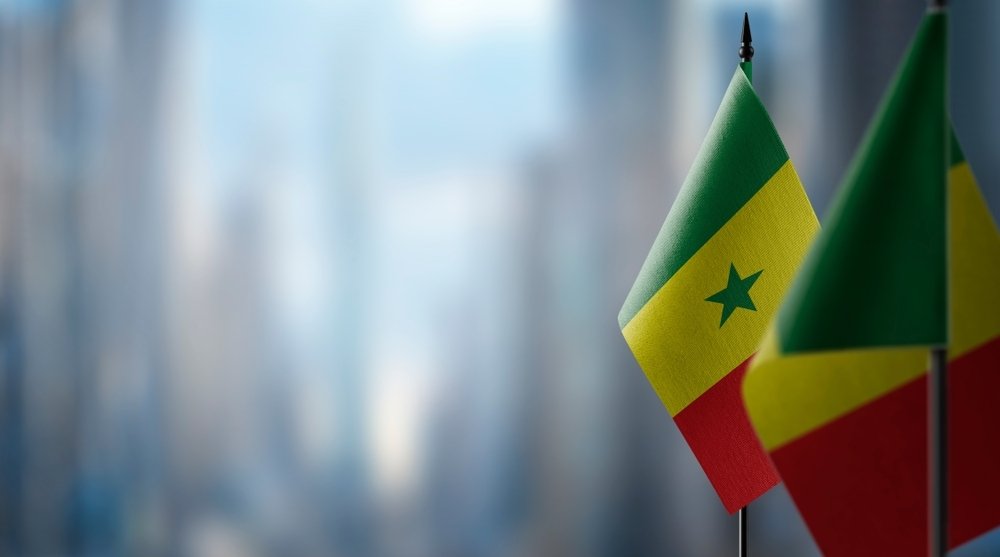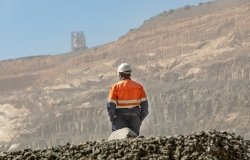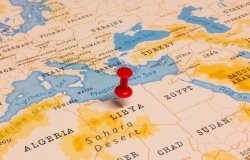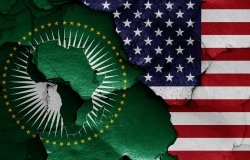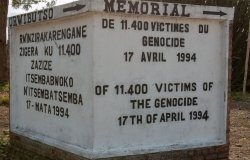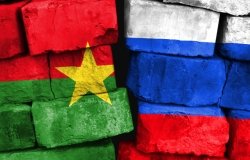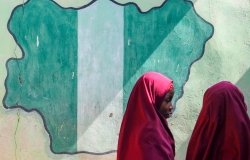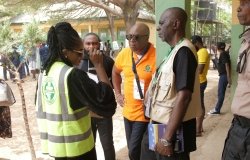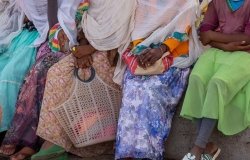
A blog of the Africa Program
“Power to the People”: Revisiting Senegal’s Political History in Light of the 2024 Elections
Senegal’s outgoing President, Macky Sall, announced at the start of January that the nation’s elections would be postponed indefinitely due to a dispute between the National Assembly and the Constitutional Court over the eligibility of certain candidates. The most prominent of these candidates were Karim Wade (former government minister and son of former president Abdoulaye Wade), who was imprisoned during Sall’s first term under corruption charges; and Ousmane Sonko, who was barred from the election due to being jailed for ‘corruption of the youth’. Sonko’s party PASTEF was disbanded in July 2023. Despite Sall’s attempts to delay or stop the election, Bassirou Diomaye Faye, Sonko’s deputy in PASTEF, ran as an independent and won roughly 20 per cent more votes than the next closest candidate Amadou Ba, Sall’s chosen successor and a former Prime Minister. Media coverage of these events focused to a large degree on Senegal’s international reputation as “a beacon of democratic stability” in West Africa, a country where elections are often viewed as free and fair and citizens engage robustly in the public sphere. However, this perspective obscures contemporary Senegalese history. We can learn two lessons from Senegal’s history, the 2024 election, and Faye’s victory: 1) the government has historically behaved anti-democratically since independence; and 2) Senegal’s citizens, particularly the youth, have consistently held the power to disrupt this behavior.
The State’s Anti-Democratic History
While Sall’s announcement is the first occurrence of a Senegalese president postponing an election, it is not the first time that a Senegalese president has stifled free expression or legal participation in elections. Senegal’s first president Léopold Sédar Senghor ran a de facto one-party state led by his Senegalese Progressive Union (UPS) party; other political parties were not able to participate in elections until 1976. Moreover, Senghor had his popular, leftist prime minister Mamadou Dia arrested in 1962, accusing him of plotting a coup. Dia would remain imprisoned until 1974. In a 1963 speech to the UPS ahead of national elections, Senghor stated that the nation had “been saved” from Dia’s planned coup. He further asserted that ‘the Leadership of the [UPS’ Party]…elaborates the doctrine and outlines the program [of development],’ as well as ‘driving unions and activists, in developing their conscience and their will’. With his closest political rival sidelined, Senghor saw himself as the state. As has been discussed by Senegalese scholars Omar Gueye and Rama Salla Dieng, Senghor did not tolerate public dissent from the youth. In 1968, a student strike at the Université Cheikh Anta Diop in Dakar against government cuts to student welfare programs resulted in a violent crackdown by police—mimicking similar responses by Sall’s government to the 2023 and 2024 protests across Senegal.
Senegalese Citizens Creating Democracy
The successes of Senegalese democracy, historically, have come through the work and activism of the nation’s citizens. As Dieng recently discussed, Senegal has a history of “democracy from below.” Senegalese citizens have struggled against its leaders’ attempts to maintain their grip on power. Following the state violence of 1968, Senegalese youth did not curb their attempts to support democracy. Senghor handed over power in 1981 to his Prime Minister Abdou Diouf, who continued the government’s tradition of working to suppress the opposition to maintain a hold on power, such as its banning of a coalition movement against Diouf in the 1985 elections—a prelude of sorts to Sall’s more recent “constitutional coup.” However, Diouf’s attempts to run for a fourth term in 2000 presidential elections generated a mass popular movement led by youth—as well as musicians—called Bul faale (“Don’t worry”). This movement’s name originates from a track released by the hip-hop duo Positive Black Soul (PBS). The duo of Didier Awadi and Duggy Tee criticized Diouf’s politics and praised radical leaders such as the late Burkinabe president Thomas Sankara. With the support of the youth movement, opposition candidate Abdoulaye Wade won the 2000 election in what was often referred to as “a victory for African democracy”—presciently calling ahead to the headlines surrounding Faye’s recent victory, which also succeeded due to mass youth support. In 2011-2012, the government, this time under Wade, again attempted to consolidate and remain in power despite citizen opposition, particularly the youth. As with the 2000 election, the incumbent president faced a youth movement led by musical artists—Y’en a marre (“we’re fed up”)—who opposed Wade’s run for an unconstitutional third term. Through civic organizing, peaceful demonstrations despite state violence, encouraging citizens to vote, and messaging through popular music, the movement played a key role in promoting democracy at a critical time and led to Macky Sall’s victory in 2012.
“Power to the People” – Lessons Learned
In Senegal’s political history there is always a tension between state attempts to stifle democracy and the people’s efforts to disrupt and subvert these attempts. Successive governments—from Senghor to Sall—have consistently endeavored to suppress criticisms of their government or impinge upon rights to vote. However, at each turn, the government has been met with opposition and activism from Senegalese citizens, particularly its youth. The country’s youth have prevailed despite state violence during the 2000, 2012, and 2024 elections, and in other instances. In exchanges with colleagues and friends in Senegal since word came that Faye had won the election, one phrase has been invariably repeated: “pouvoir au peuple!” (“power to the people!”). These two lessons, as well as Faye’s victory, are key to understanding Senegal and the nation’s future: the people have the power.
About the Author
James J. Fisher

Africa Program
The Africa Program works to address the most critical issues facing Africa and US-Africa relations, build mutually beneficial US-Africa relations, and enhance knowledge and understanding about Africa in the United States. The Program achieves its mission through in-depth research and analyses, public discussion, working groups, and briefings that bring together policymakers, practitioners, and subject matter experts to analyze and offer practical options for tackling key challenges in Africa and in US-Africa relations. Read more
